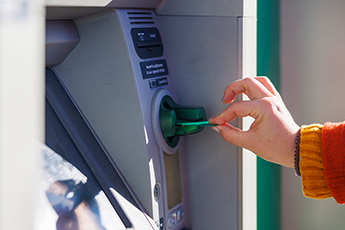To blow your mind this morning, we note that scientists say the average cumulus cloud floating along in the air actually weighs about 1.1mm lbs! It seems along with the fluffy floating, they certainly carry a lot of water too. Most people don't even think about the weight of clouds, just like very few people think very much about banking using their smartwatch.
Smartwatch banking used to be only for the most tech-savvy financial institutions. But now, it can be another nifty tool for community financial institutions (CFIs) to offer, particularly to millennials and Gen Zers.
A record 45mm smartwatches were shipped in 2018, according to Strategy Analytics. Not only that, but more people are making payments using a wearable device. In the US, nearly 50% of smartwatch owners pay via these devices.
Gartner predicts smartwatch banking will get even more popular once 5G networks are rolled out and internet of things (IoT) capabilities are further developed.
Most of the CFIs that have been early adopters are offering basic functionality on smartwatches, including the ability to check balances, conduct point-of-sale transactions and locate ATMs.
But once banking app developers can incorporate more kinds of data stored on smartwatches, CFIs can find additional ways to help their customers solve potential financial issues.
Moreover, as smartwatch user interfaces improve, other banking functions that are currently offered through a phone, tablet or computer can be introduced on smartwatches. These could include bill pay, personal financial management, card control and even bank investment platforms.
On top of this, when artificial intelligence (AI) is incorporated into smartwatches, even more useful features can be developed to analyze customers' financial needs via insights gained from smartwatch data.
If your institution is considering smartwatch banking, here are a few things to consider:
- Work with your digital service provider to incorporate within your banking app the digital wallet services offered by Apple Pay, Android Pay and Samsung Pay.
- Give customers the option to use their smartwatches remotely to make payments. Then, if they do, make sure their bank account data is encrypted when transferred from the smartwatch to a point-of-sale terminal via near field communications.
- Also give customers the option to erase data when the device is lost or stolen. One community bank in the Northeast offers a "Zero Liability Policy," letting their customers know that their digital information and transactions "are as safe as the cash in the bank's vault."
While your bank likely won't charge for these services, you can be rewarded with more customers who may be "stickier" because they appreciate your bank's efforts to provide such tools. As your customers get younger too, it may be time to start looking at smartwatch banking.




